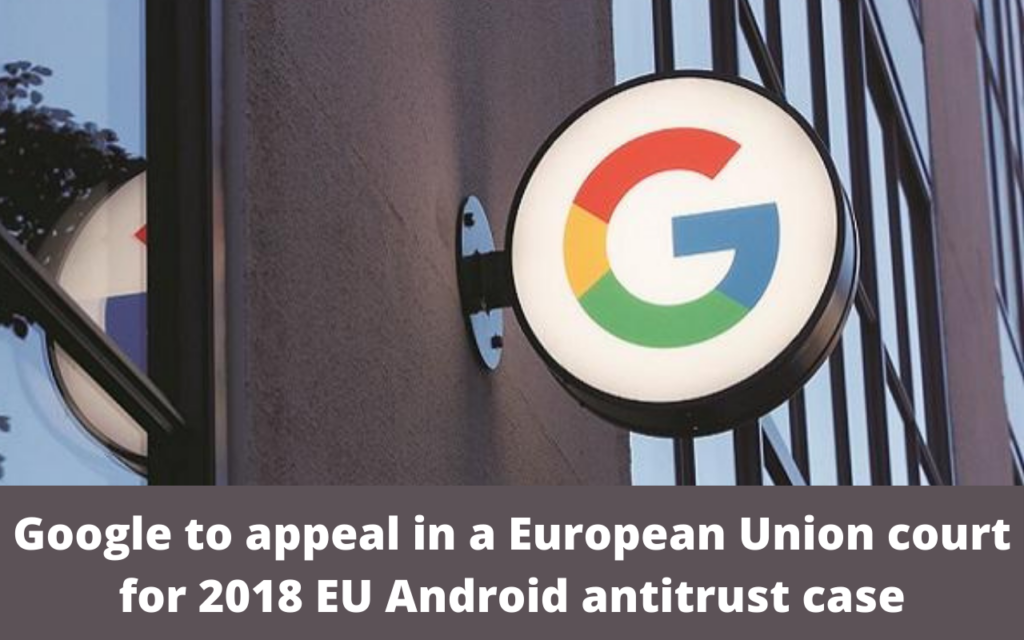Google is set to appeal to a top European Union court on Monday about a record EU antitrust penalty charged for suppressing competition through the dominance of its Android operating system.
Google is fighting the decision of the EU’s executive Commission, the bloc’s antitrust enforcer, that caused the 4.34 billion euro (USD 5 billion) fine in 2018. This is the highest amount of fine Brussels has charged for anticompetitive behavior.
This is one of the three antitrust penalties that summed up to more than USD 8 billion the commission has imposed on Google between 2017 and 2019.
The California tech company plans to appeal all three penalties, the others pointed to shopping and search categories.
Critics say that Google will have no trouble paying these fines even if the amount involved is huge. They added that the penalties did not create significant effects to widen the competition.
The commission said in its original decision that Google’s methods suppress competition and lessen the consumers’ choices.
Google, on the other hand, plans to dispute that Android, a free and open-source, paved the way to more affordable phones and stirred competition with its main rival, Apple.
Android has generated more options for everyone, not less, and aids countless booming businesses in Europe and worldwide.
The company added that the case is not supported by the facts or the law, in the opening of the five-day hearing at the European Court of Justice’s General Court.
The EU Commission refused to comment.
Android is the most famous operating system for mobile phones, defeating even Apple’s iOS. Four out of five devices in Europe are Android-operated.
The Commission ruled that by asking smartphone manufacturers to get a Google app bundle if they wanted any at all, Google broke EU rules. Smartphone makers are also prohibited from selling devices with altered versions of Android.
11 applications are part of the bundle, including YouTube, Maps, and Gmail, but regulators focused on the three that had the biggest market share: Google Search, Chrome, and the company’s Play Store for apps.
According to Google, since Android is open-source and free, phone makers or consumers can pick which apps to install on their devices themselves.
And due to Google bearing the costs of creating and maintaining Android, they have to find ways to get back that expense, thus they include the apps to help generate revenue such as Search and Chrome.
Read More: ‘Happy’ SpaceX Tourist Crew’s First Day Spent Wizzing Around Earth
Google has also reiterated that despite having the pre-installed apps on Android phones, this will not restrict the users to download rival apps and services.
The Commission also pointed out Google’s payments to wireless carriers and phone manufacturers to exclusively pre-install the Google Search app. However, the company said those agreements only amounted to less than 5% of the market, thus less likely to hurt competitors.
Google then decided to make some changes to address the issues, following the ruling. This includes giving European Android users the options for their browsers and search apps as well as charging phone makers to pre-install its apps.
Read More: Tesla’s Rival Launched Created America’s Fastest Car

